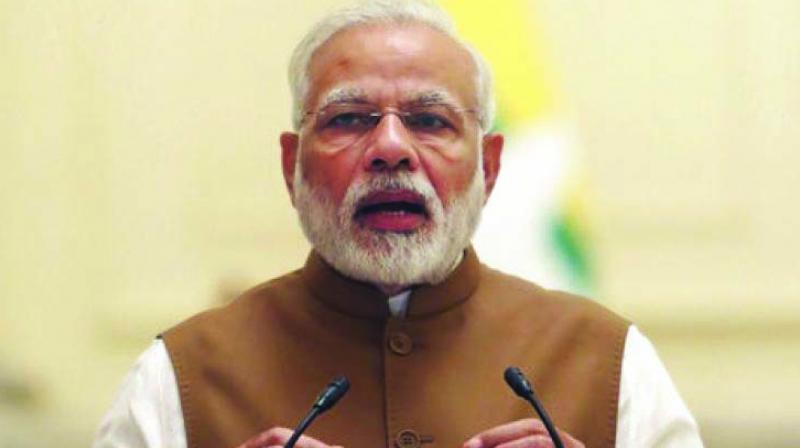Dilli Ka Babu: Modi reaffirms faith in babus
In the present government, former babus are at the helm of five Union ministries, and ministers of state in four ministries.

A notable feature of the Modi government’s first term and which has spilt into the second term is Prime Minister Narendra Modi’s firm belief that, in some instances, experienced bureau-crats can do the job better than even seasoned politicians.
In the past, under other dispe-nsations too, there are several instances of babus making the transition to netas, but it was only when the NDA came to power in 2014 under Mr Modi that we can say it has been mainstreamed, in a manner of speaking.
In his first term, Mr Modi bestowed key ministries on four former bureaucrats — R.K. Singh, Hardeep Puri, K.J. Alphons and Satya Pal Singh, ignoring the aspirations of many party colleagues. He could afford to do so since the BJP had won a two-thirds majority in the electorally significant state of Uttar Pradesh, pushing potential dissenters to the background. Now in his second term, and with a stunning 303-seat mandate, the Prime Minister is applying the same formula with even greater vigour.
Yet, despite knowing Mr Modi’s fondness for bureaucr-ats, almost everyone was surp-rised when at the swearing-in ceremony of the Council of Ministers, former foreign secr-etary Subrahmanyam Jaishan-kar was asked to take oath as a Cabinet minister ahead of party veterans such as Prakash Javadekar, Piyush Goyal and Mukhtar Abbas Naqvi. The retired Indian Foreign Service 1977-batch officer now helms the external affairs ministry.
Mr Jaishankar’s senior in the service and former Indian envoy to the United Nations, Hardeep Singh Puri, may have lost the election but that did not stop Mr Modi from placing him in charge of two key ministries — the ministry of housing and urban affairs, and the ministry of civil aviation.
Then former Union home secretary and IAS officer R.K. Singh is once again given independent charge of two ministries, the ministry of power and the ministry of new and renewable energy.
In the present government, former babus are at the helm of five Union ministries, and ministers of state in four ministries. Mr Modi’s trust in bureaucrats has only grown over the years. Certainly, the Prime Minister’s Office (PMO) filled with Mr Modi’s trusted and handpicked bureaucrats is the most powerful office in government.
But observers say that the biggest challenges these babus-turned-netas will face are not the issues of their respective ministerial domains but taking their ex-colleagues in the bureaucracy along.
While admitting that babus have the advantage of knowing how the government functions, it is the seasoned neta who would have a better unders-tanding of what the people want. It is obvious where this belief comes from!
And Mr Modi knows that his second coming as Prime Minister will be judged solely on his ability to deliver on his electoral promises. And his band of trusted babus and ministers will have to work to ensure that the government stays good to its word.

